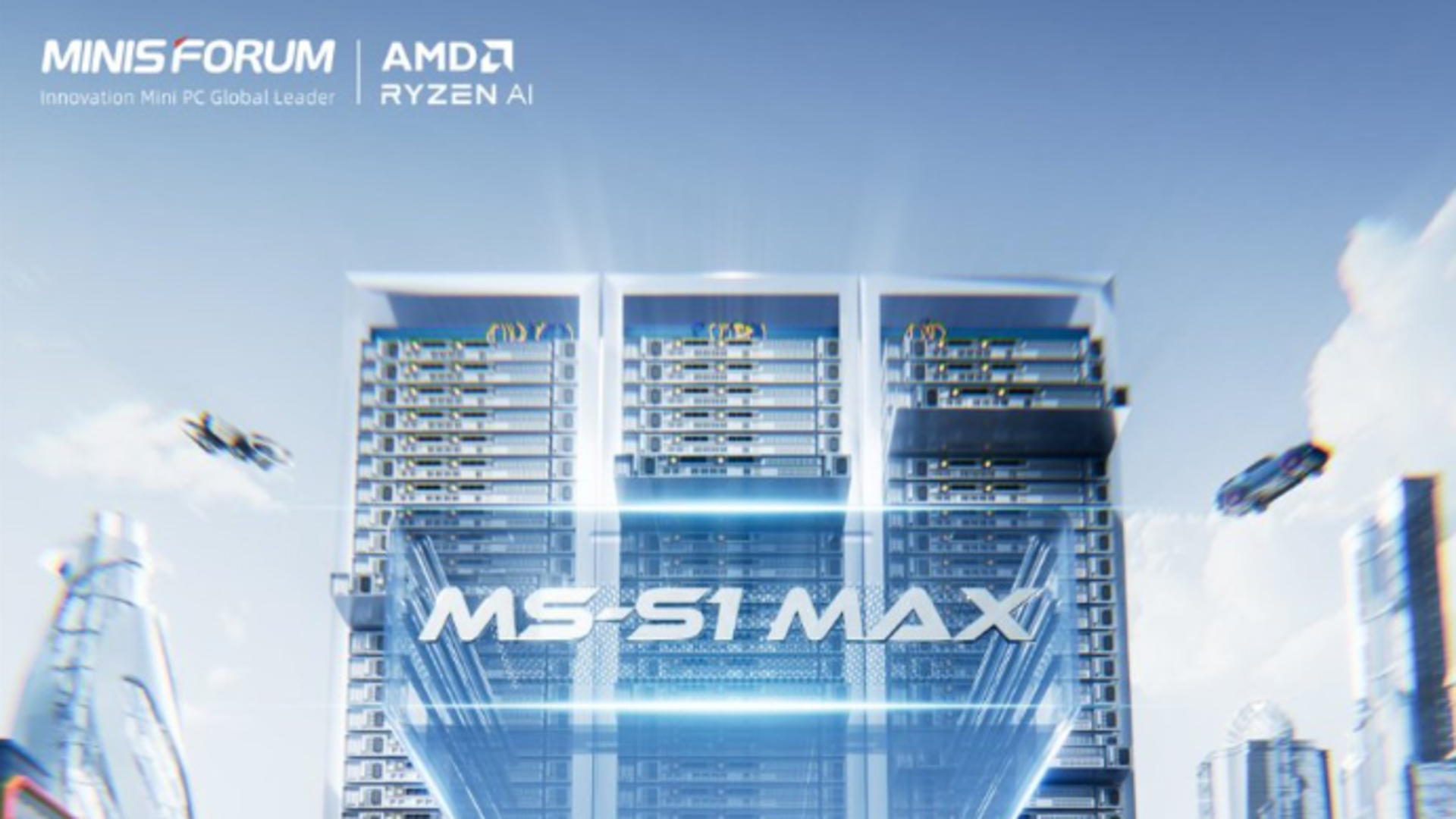AMD has a problem: Chinese vendor goes rogue and puts Ryzen AI CPUs in server racks instead of EPYC processors
MS-S1 Max is the AI rebel server AMD didn’t want, but might have to live with

Sign up for breaking news, reviews, opinion, top tech deals, and more.
You are now subscribed
Your newsletter sign-up was successful
- Minisforum reveals Ryzen-powered rack server which could rewrite AMD’s playbook entirely
- Ryzen in the rack? AMD’s clean product lines might never be the same again
- A mobile chip in a server chassis - Minisforum’s MS-S1 Max isn’t playing by the rules
Minisforum has announced what it calls a game-changer for AI deployment in compact computing environments: the MS-S1 Max, a 2U rackmount system powered by AMD’s Ryzen AI Max+ 395.
Minisforum says this system is designed to "revolutionize your AI workflow," but it marks an unusual departure from established norms.
While its 3.2-liter form factor and all-in-one design are drawing praise for efficiency, the core configuration raises uncomfortable questions for AMD.
Minisforum’s approach threatens AMD’s server ecosystem
Minisforum has opted not to use AMD’s EPYC processors, designed explicitly for server tasks, and instead fitted what is effectively a mobile-class chip into a server chassis.
Although the MS-S1 Max is marketed as the best SMB server and even hints at broader enterprise ambitions, it’s difficult to ignore that this is a repurposing of hardware intended for a different context.
The Ryzen AI Max+ 395 is not a server CPU by design. It’s optimized for client workloads, featuring integrated Radeon graphics and an AI NPU.
What it offers, however, is a cost-effective and power-efficient solution for companies seeking local AI inference or the ability to run large models like DeepSeek 70B without the overhead of traditional infrastructure.
Sign up to the TechRadar Pro newsletter to get all the top news, opinion, features and guidance your business needs to succeed!
That edge makes it appealing to universities, labs, and AI startups, but it also turns the system into a wildcard in AMD’s carefully managed product segmentation. This unconventional use could complicate AMD’s broader strategy. EPYC chips are built for reliability, scalability, and intensive server workloads, and they command higher margins.
A surge of mini PC makers embedding consumer-grade Ryzen chips into rackmount systems might blur the line between consumer and enterprise offerings.
Still, the MS-S1 Max’s value proposition is hard to ignore. By delivering strong on-chip graphics and directing substantial memory bandwidth to its GPU, it offers a local AI engine at a fraction of the cost of traditional server gear.
That said, the catch lies in support, reliability, and long-term performance. Ryzen chips, while powerful, lack ECC memory support and validated server-grade features.
This makes them a questionable fit for mission-critical deployments, and puts AMD in a tough position. If demand grows, AMD may be forced to either restrict such uses or embrace them, potentially undermining its EPYC business.
This mobile workstation is expected to launch in the second half of the year.
You might also like
- These are the best firewalls around today
- Take a look at the best business VPNs
- Openreach declares aim to accelerate UK high-speed broadband rollout

Efosa has been writing about technology for over 7 years, initially driven by curiosity but now fueled by a strong passion for the field. He holds both a Master's and a PhD in sciences, which provided him with a solid foundation in analytical thinking.
You must confirm your public display name before commenting
Please logout and then login again, you will then be prompted to enter your display name.